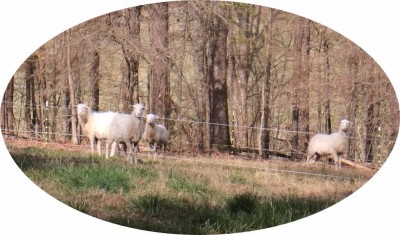Baa!
On Wednesday morning Mother and I were able to join our Wednesday morning Ladies Bible Class at church. With two weeks of play practice, two weeks of travel for the two conferences in Colorado, and the class’ fall break last week, this was my first opportunity to be there. I have been gone so much this year that I had to have a substitute teacher for many weeks last spring. To my great joy, she was willing to continue as the teacher this fall. I loved teaching these ladies; but on Wednesday morning, I loved even more being able to enjoy her teaching.
We studied Abigail and her husband Nabal and their encounter with future King David in 1 Samuel 25. I look forward to writing about Abigail another day, but today I want to tell what I learned about sheep shearing when my classmates were growing up in the 1930s and 40s here in our county.
In 1 Samuel 25:2, it is sheep shearing time in Israel. Our teacher Sue told us that those times were periods of great celebration in ancient Israel. I know nothing of sheep shearing except what I have seen in books, at festivals, or in documentaries: but for some of these ladies, the subject of shearing sheep brought back special childhood memories.
Our teacher Sue then told us about her memories and soon Miss Wanda joined in with hers. Sheep shearing was a special gathering time for Sue’s family. Her mother was busy cooking lots of food for the relatives who came to join in the work and fun. Even though shearing took place in the spring, it was still a bit chilly, so Miss Wanda’s family built a big fire to stay warm during this outdoor activity.
When Sue’s dad sheared his sheep with his special shears, the last part he sheared was the sheep’s neck. That’s when the entire fleece came off in one piece. A man in town bought the sheep fleeces from the many local farmers who raised them. Miss Wanda said that her daddy took their fleeces to town in grass sacks or in sacks her mother made from domestic. I remember my mother talking about domestic when I was a child. She spoke of brown domestic and a bleached variety. Today we call it muslin.
I had never heard of grass sacks and had to ask what they are. The ladies said they are the same thing as burlap sacks — which is exactly what we called them in my hometown.
Both Sue and Wanda talked about orphan lambs. Sue said that when a mama sheep died, leaving baby lambs, her family placed a big black nipple on a Coke® bottle and fed the babies. Miss Wanda said that her family had collars with bells on them. If a mama sheep rejected her babies, they put a collar on her. After that her baby lambs would follow her bell until finally she decided to accept her babies.
I shared these sheep stories with you today simply because I found them sweet and fascinating. I like to picture these scenes in the lives of these dear friends of mine. God obviously loved sheep stories and believes that we can learn many lessons from sheep and fleeces and baby lambs because the Bible tells one story after another about sheep and fleeces and little lambs. Then, His Son became a lamb and laid down His life for the sheep.
I am the good shepherd,
and I know My own and My own know Me,
even as the Father knows Me
and I know the Father;
and I lay down My life for the sheep.
John 10:14-15
. . . you were not redeemed with perishable things
like silver or gold
from your futile way of life
inherited from your forefathers,
but with precious blood,
as of a lamb unblemished and spotless,
the blood of Christ.
1 Peter 1:18-19


